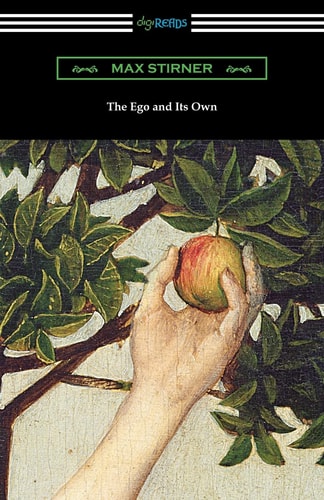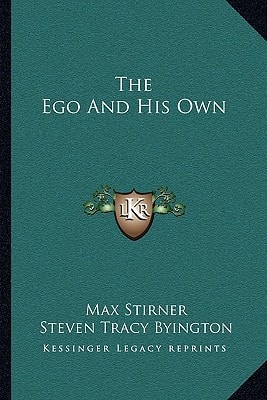
Product Description The Ego and Its Own is an 1844 work by German philosopher Max Stirner. It presents a radically nominalist and individualist critique of, on the one hand, Christianity, nationalism and traditional morality, and on the other, humanism, utilitarianism, liberalism and much of the then-burgeoning socialist movement, advocating instead an amoral (although importantly not inherently immoral or antisocial) egoism.Stirner believed that there was no objective social reality independent of the individual; social classes, the state, the masses, and humanity are abstractions and therefore need not be considered seriously. He wrote of a finite, empirical ego, which he saw as the motive force of every human action. Writing chiefly for working-class readers, he taught that all persons are capable of the self-awareness that would make them "egoists," or true individuals.Max Stirner in his book The Ego and His Own (1845) recommended, instead of social reform, a ruthless individualism that should seek satisfaction by any means and at whatever risk. A small group of other individualists. Review "My power is my property. My power gives me property. My power am I myself, and through it am I my property.""The state calls its own violence law, but that of the individual, crime.""Revolution is aimed at new arrangements; insurrection leads us no longer to let ourselves be arranged, but to arrange ourselves, and set no glittering hope on "institutions""The web of hypocrisy of today hangs on the frontiers of two domains, between which our time swings back and forth, attaching its fine threads of deception and self-deception. No longer vigorous enough to serve morality without doubt or weakening, not yet reckless enough to live wholly to egoism, it trembles now toward the one and now toward the other in the spider-web of hypocrisy, and, crippled by the curse of halfness, catches only miserable, stupid flies." ― Max Stirner, The Ego and Its Own About the Author Max Stirner, pseudonym of Johann Kaspar Schmidt, (1806, Bayreuth, Bavaria [Germany]-died 1856, Berlin, Prussia), German antistatist philosopher in whose writings many anarchists of the late 19th and the 20th centuries found ideological inspiration. His thought is sometimes regarded as a source of 20th-century existentialism. After teaching in a girls' preparatory school in Berlin, Stirner made a scanty living as a translator, preparing what became a standard German version of Adam Smith's Wealth of Nations. He contributed articles to the liberal periodical Rheinische Zeitung, which was in part edited by Karl Marx. Later Marx tried to refute Stirner's ideas, ironically calling him Sankt Max (Saint Max). His most influential work is Der Einzige und sein Eigentum (1845; The Ego and His Own). Stirner believed that there was no objective social reality independent of the individual; social classes, the state, the masses, and humanity are abstractions and therefore need not be considered seriously. He wrote of a finite, empirical ego, which he saw as the motive force of every human action. Writing chiefly for working-class readers, he taught that all persons are capable of the self-awareness that would make them egoists, or true individuals. Max Stirner in his book The Ego and His Own (1845) recommended, instead of social reform, a ruthless individualism that should seek satisfaction by any means and at whatever risk. A small group of other individualists.





